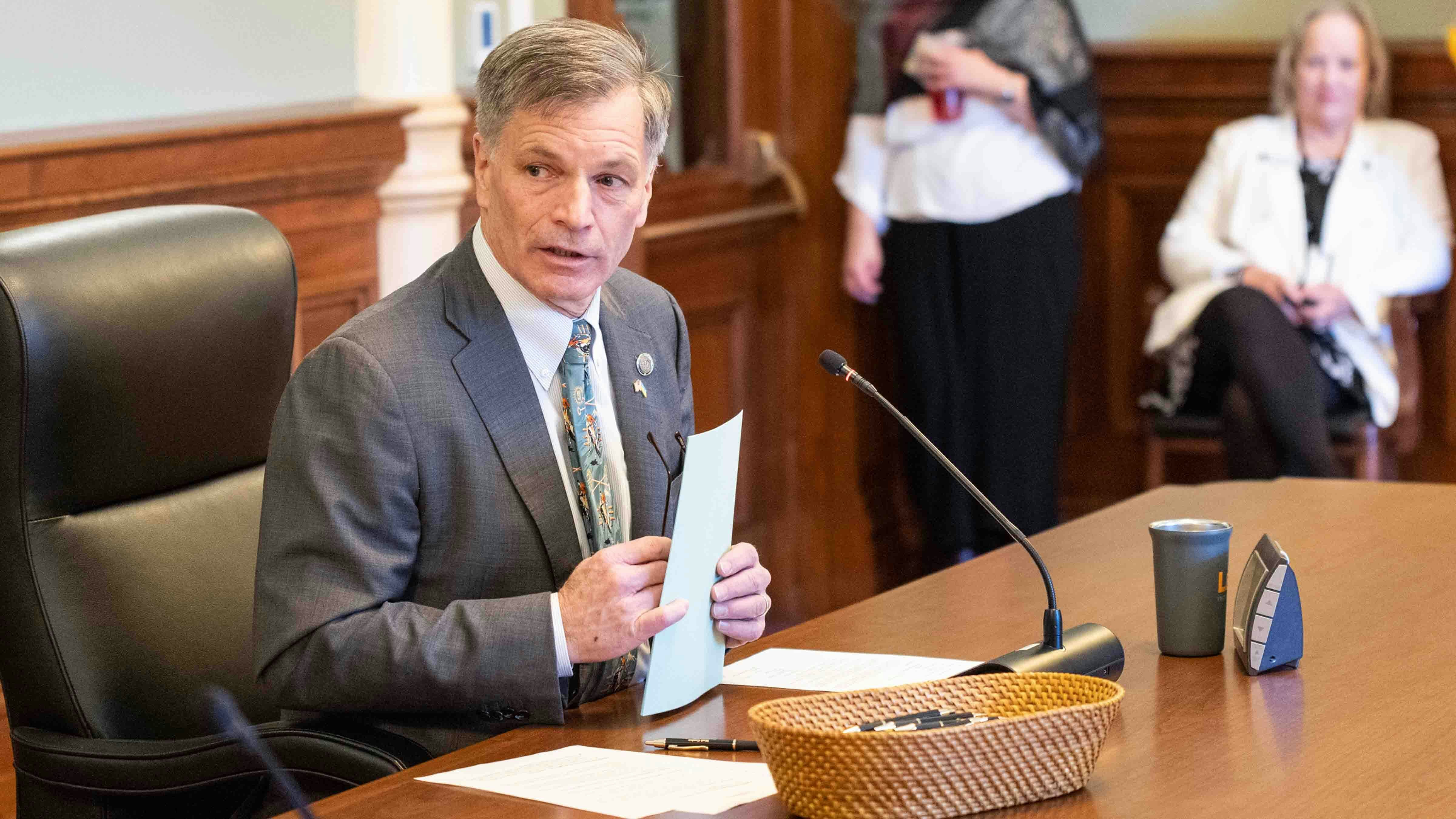There are few decisions more difficult for the members of the State Lands and Investment Board (SLIB) than making final determinations on projects critical to the well-being of our more rural and smaller communities. Projects like equipment and infrastructure – necessary for basic services like water supply – we expect to work.
It has become ordinary for communities to approach the SLIB when extraordinary things happen, and the five elected members of the SLIB board do their best to address the needs of each.
At my request, SLIB held a special meeting in January 2024 to consider Wheatland’s failing Black Mountain water storage tank. The SLIB authorized “emergency” funds to begin the repairs and replacement of components in this system.
Among the funds SLIB has the ability to distribute are so-called Mineral Royalty Grants (MRGs) which come from the development of our State’s mineral resources.
The Legislature ultimately determines how much money goes to each of these funding mechanisms through the biennial budgeting process.
Towns and counties are used to the MRG grants process and regularly come to the SLIB to address unusually expensive circumstances that show up every year in communities across the state.
Wheatland has been successful in their applications for funding for the Black Mountain water storage tank through existing programs ranging from American Rescue Plan Act (ARPA) and MRG, to the most recent Omnibus water bill-construction.
Since their first application in August 2022, Wheatland has been able to accrue the bulk of funding necessary to complete this project through these various sources.
To date, Wheatland has been approved for a total of $4,985,500 specifically for the Black Mountain water storage tank project. Another $1,864,433 is pending an additional MRG application, which should be submitted for a future SLIB meeting.
For the record, this information is all publicly available through OSLI, and our SLIB meetings are open to the public for comment and content.
More funds are needed to complete the repairs; however, despite public statements made in the aftermath of the 2024 Budget Session, it is important to remember the funding necessary to demolish the failing tank and improve the system to meet Environmental Protection Agency standards have already been secured through the January SLIB Special Meeting process.
A fix as substantial as the Black Mountain water tank will need to avail itself of multiple programs available through the state and there are some steps that remain to make sure the anticipated repairs of this system are fully addressed.
Combining efforts between the Wyoming Water Development Office, OSLI, and the Department of Environmental Quality, just as we have done with Wheatland, our agencies review projects and grant applications from every county and town to make sure funds are spread fairly across the state and targeted to projects, like Wheatland’s, that need them the most.
Wyoming was quick to respond to federal ARPA funds, which provided yet another opportunity for small towns to apply for otherwise difficult-to-obtain funding.
This most recent Budget Session was non-traditional. Typically, according to the Wyoming Constitution, Wyoming’s budget is intended to fund only the “ordinary” government expenses. In recent history, capital and special projects have been the subject of separate bills.
This year, however, the capital construction bill was defeated on introduction. That left the regular budget as the only vehicle to consider any construction.
As I mentioned in my State of the State, MRG funding provided to the SLIB is a proper and ordinary appropriation that is used by towns and counties for these kinds of projects from emergency to more routine efforts to improve infrastructure in the state.
There is a tendency for the legislature to try to legislate within the budget. During my time as Governor, I have consistently resisted that temptation.
Therefore, despite claims to the contrary, my line item veto of this project in the 2024 budget was not punitive, but rather a reflection of the adequate support the State has already provided through the variety of programs including MRG grants outlined above and the desire within the limits of circumstances this legislature imposed on itself to reign in budget bill earmarks and precedent.
Wyoming has 93 legislators, representing every community along with their unique projects and needs.
It is in Wyoming’s best interest to ensure these types of budget earmarks do not become regular practice and that all of our hometowns enjoy the opportunities Wyoming established programs provide. I look forward to continuing to engage on these and other critical infrastructure needs at future SLIB meetings.
Mark Gordon, Governor of Wyoming





